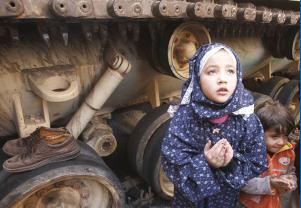The Egyptian Gazette, by Mohamed Kassem, Monday, May 23, 2011
JAKARTA – Egypt occupies a special place in Indonesia’s history and many Indonesians have not forgotten how Egypt was one of the first countries to recognise its independence from a colonial power.
Against this backdrop and the recent democratic transition in Egypt, there is a widespread international awareness of the similarity between Indonesia’s experience with democratisation since 1998 and the rapidly moving events in Egypt today.
Egypt is entering a period of historic political transition and is facing remarkably similar challenges to those that Indonesia had to deal with during the period of reformasi in the late 1990s and early 2000s.
Following a popular uprising against a previously entrenched authoritarian regime, Egypt today, like Indonesia a decade ago, is attempting to rebuild its institutions of state and foster a new democratic culture and open political competition.
Conditions in Egypt today resemble those of the immediate post-Suharto period in Indonesia, with the closest parallel perhaps in the months between the resignation of the Indonesian President in May 1998 and the convening of the Special Session of the People’s Consultative Assembly (MPR) in November whereby the agenda of reform was agreed upon.
Like that time in Indonesia, events in Egypt are moving rapidly with the holding of the referendum on constitutional reform on March 19 in Egypt and elections next September.
In light of political developments in the two countries, it is appropriate to compare them in other more basic ways. Indonesia and Egypt are of similar size and potential global significance and are pivotal in their respective regions.
Both have a moderate Muslim majority but with significant non-Muslim minorities; have a largely secular political culture but with challenges from Islamist minorities; and have had militaries with a major role in politics and the economy.
Given the similarity between the processes of democratic transition in Indonesia and Egypt, a workshop, organised by the Institute for Peace and Democracy, opens Wednesday in Jakarta to initiate dialogue between selected Indonesians and Egyptians regarding lessons and observations about the Indonesian experience that may be of relevance to efforts to strengthen democracy in Egypt.
This is not to suggest that everything that occurred in Indonesia from 1998 should or could be copied by Egypt, but that the Egyptians can select what they might find helpful. Mistakes as well as successes could be taken as inspiration or salutary lessons.
The objective of the workshop is first to hold dialogue and provide an opportunity for the Egyptian participants to be exposed to examples from a comparable country, not to develop particular proposals or solutions, say organisers.
The initiative of the workshop came from the Institute of Peace and Democracy (IPD) as the implementing agency of the Bali Democracy Forum (BDF) as a track to initiative.
The focus of the discussions would fall under the broad theme of “Setting the Agenda”: in other words, identifying what are the key tasks that need to be tackled in the immediate period to advance and consolidate democracy in Egypt.
The current situation is very fluid and the nature of constitutional and political arrangements in the post-Mubarak era are not yet clear. The most pressing task would appear to be to define what has to be done, how and when it should be done and who should do it.
Current debate in Egypt about what should be done appears to focus on questions such as the role of an interim administration, constitutional reform and early elections, the how and who embraces issues such as the place of the military in both the transition period and in future politics, balancing the respective voices of various majority and minority religious and socio-economic groups in the process of change, as well as the role of political parties and civil society in a new national political compact.
The when questions, especially the timing and sequencing of constitutional reform and elections, will critically affect the quality of popular consultation and participation and thus the nature of outcomes.
Topics of discussion include the role of the military in transition and their place in future democratic society, constitutional and political reforms, politics and state in Islam as well as the role of the media in transitional and consolidating democracy.

No comments:
Post a Comment